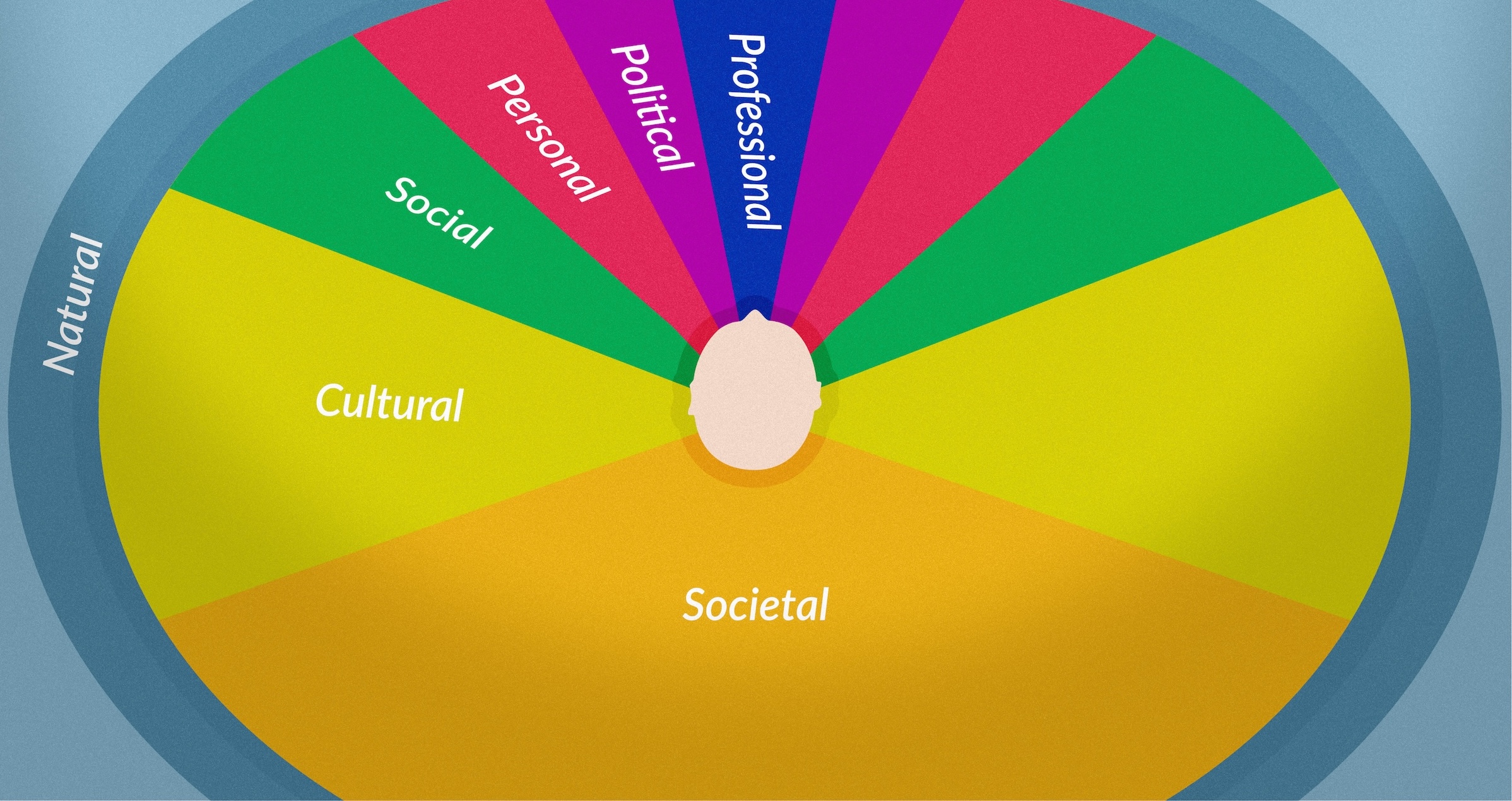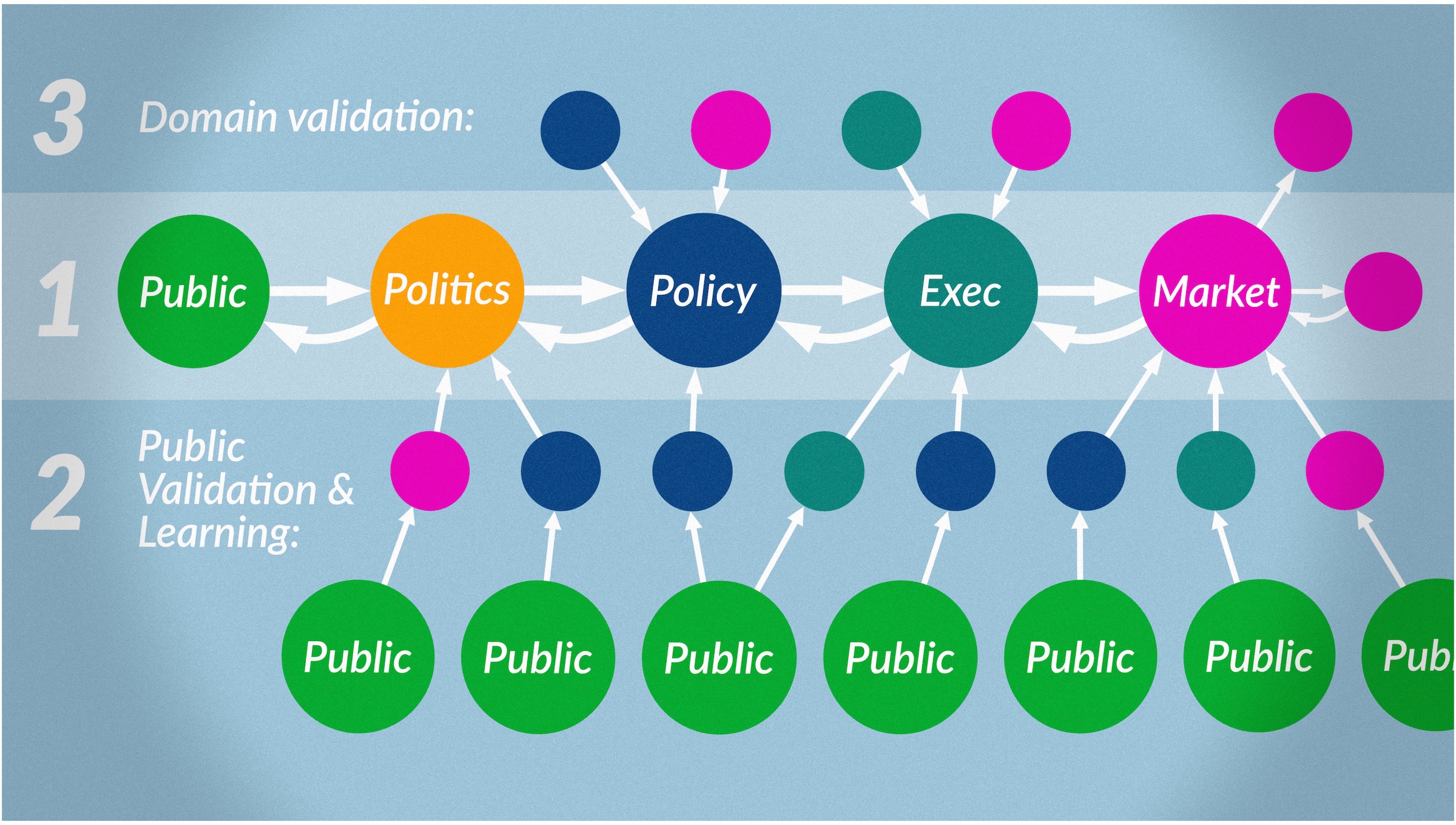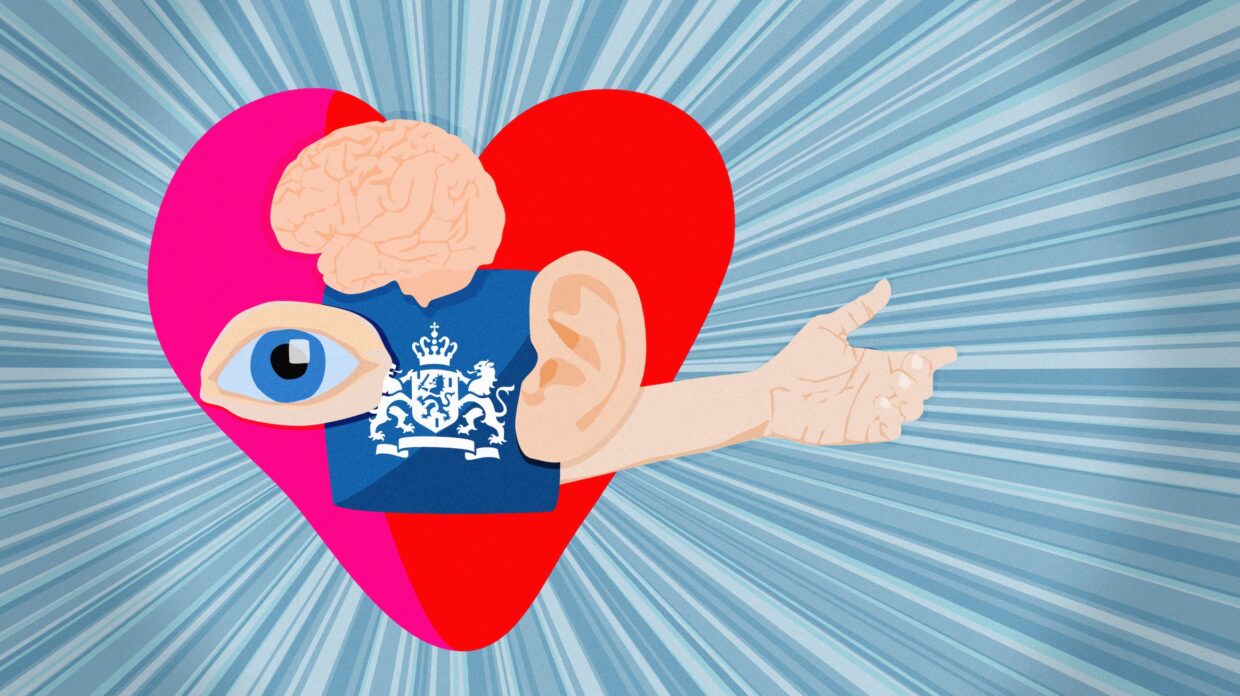The true powers of a digital government to me are that it can learn fast, has access to the means to do so and its distance to your run of the mill people COULD be as close as a literal click. Unfortunately most governments are not using their super powers. In this article we’ll touch upon these super powers and discuss the change that needs to happen to learn from people without encroaching in their lives.
Of course we should discuss why contemporary governments do not use their powers, so we can help them to take the leap of continues self-improvement, based on the ever changing needs of society, people, companies, trade and political allies. But first a break down of how I have met government.
Government is finished
In the time I have worked for governments (which has been months, not years) I met passionate people, engrossed by their craft, obligation and mission. The frame in which they work has been shaped for better and for worse a couple of centuries ago. This history filled with rituals and thousands previous leaders, administrators and political waves left a wear on the machine. This wear could best be explained as bias. People in government know what they must do, but most of all: what things are hard, are illegal and might cause problems.
These rituals, culture and bias causes people in government to hire people that think alike, to an extreme. It is actually, quite literally in their vacancy texts: academic background, experience in a ‘political sensitive’ environment. To me this is cultural and functional suicide: you will do more of the thing that you did, because of “We have done things like this for ever”. Government is finished, done, perfect. Well, it’s not, but as all these lovely people look into the same mirror, see the same people each and every day, they don’t see need to change, take up responsibility and learn to be better.
We are for sure in a lull of bureaucracy: everything is stuck, people inside are satisfied and averse to change, or at least not used to it. There is no reason to improve a working system. And when there is reason, people grab the one set of tools they have always used: legislation, rules, policy to fend off possible threads to their existence and their perfect frame. As if the only tools they have know for all their existence are magical. They are not, and pretty soon governments will need to find out.
Government goes digital
Given the possibilities of digital and its availability, but also its threats, pitfalls and dangers would be enough reasons for any organization to move ahead and discover, assess, change and embrace. Governments however are like a factory: their function, processes and supporting rituals may not change, because it might encroach on the product.
Solution to an unmovable governmental organization and a unstoppable digitization of the rest of society? Digital has underpinned the functions of government, paper became files, archives became databases, administrators became software and government was not the wiser, just like they ordered.
Unfortunately digital DID change them, they conformed to the patterns of Microsoft, yielded to the security measures in Citrix and widened the distance between people through a lack of understanding of usability. Digital broke government, because neither changed. Still, government IS digital, but government has degraded and digital makes it worse while it should not.
Knowledge of two things are in play here: given digital:
- how might be governmental services, processes and the actual function of politics and governing ideally be. Digital provides us with neigh magical possibilities to connect, learn and coexist, but it seems like it now functions as a tool to build a tower of Babylon.
- what knowledge needs to be added and embedded in governmental organizations to wield the wand of digital in a responsible, safe and incrementally healthy way?

To me the first thing to pick up upon is the very limiting, self inflicted bias most governmental agents have to deal with. This is NOT a personal bias, but as soon as governmental (or any professional) employee are collaborating, they drastically limit their view on what things are acceptable, viable, feasible, desirable but also legal, common, and easily leads to consensus.
Digital superpowers: see, listen, learn, apply
Okay, so government employees burden themselves with biases. This is inherently natural for any organization with a culture, history and purpose. You over-focus on the things you encounter every day.
Like i said: it’s okay, as long as you counter this limited view on the world with tools to look further, broader and deeper.
Make sure you encounter your parties of interest REGULARLY and, make sure to maximize the chances to encounter new parties. This in fact will broaden your perspective and will make it easier to do so in the future. In government however there is a technical barrier: governmental departments have a strict functional distribution of responsibilities and ‘talking with the others’ are the responsibility of implementation departments, lets say: municipal services.
Digital however makes it easier to quickly and informally discover the life and factors of a group of people to determine what their needs are, but also what the context is where those needs arise. This way governmental employees can continuously see, hear and understand what the core question is and its context so a solution and its framing can be better defined and later on: easier changed.
Digital superpowers in governmental processes
To make sure you can, or rather, must listen, here is a way to ensure the capacity of listening, seeing and learning is actually incorporated into the governmental process. Rather than giving people access to politics, we want to give politics, policy, executive and the market access to people. The goal is to make sure they all understand the people correctly by doing small and incrementally sanity checks among the people.
Layer 1: (reaffirm) the bidirectional governmental process
Layer 1 should be pretty recognizable, it’s how we go from a public need, question, behavior via politics, to policy, being executed and incorporated and finally being build. One thing to point out: there are these feedback-arrows pointing back. Now, these arrows have been a point of much debate, because internal politics (among others) have misused these avenues to frustrate the process.
This misuse has led to distrust and even disbanding the mechanisms to reset the process. These processes need to both be reinstated, but also need to be equipped with validation and a learning ability BETWEEN the parties in the governmental process.
So, let’s say some policy has been formed to start a change in the executive branch, to better support some people. That would be a moment where both Policy AND Exec call upon the Public to validate said intervention, or change. Easy as that.
Digital of course helps with both doing this swiftly, but also to incorporate and build on a learning knowledge base where dumb questions can be prevented as well as refined questions can be answered. Digital will help both build and exploit a way to do a sanity check on various phases of the governmental process, including the market questions.

Layer 2: Learning from an unending amount of sanity checks
That sanity check (number 2) informs whether or not the various parties (1) in their process not only get a formal request, but also can validate, change and expand on said request. It’s not only a sanity check, but also calling upon (recent) memory on how previous requests went, so the process and or the answer can be improved.
Once again digital will give the various parties an unbiased and shared view on the public’s perspective, zeitgeist, needs, powers and limitations. The point of doing this digitally is to ease the stress of listening and seeing the public eye to eye, as well as incrementally learn of trends, topics and influence into the public’s thinking. We’re not talking about storage of public information, but storing and learning about the governments insights. This way government can act quicker.
Layer 3: Incorporating domain knowledge into the government
Domain validation is mostly in place already, but they are mostly done by external parties and don’t seem to be orchestrated and done correctly. The goal is to here too: remember and call upon previous requests and incorporate new knowledge, rather than starting from zero. This layer does already exists informally, but it has been occupied by commercial parties and lobbyists.
Here too, the government needs to take hold of their knowledge and be the director of said knowledge. And we are mainly talking about knowledge on digital: things that has to do on governing effectively, safely and whilst upholding rule, law and policy.
Learn about the world, so you can learn about yourself
Do this every day, for several years and you’ll have collected a huge amount of information, feedback and learnings. DATA! Connect these data in a digital foundry that keeps growing and learning, it will grow in a better understanding of the world around the governmental departments, but also their connecting tissue.
Digital is a wonderful way to collect and cross reference data. And before you raise the privacy flag: YES! Privacy is paramount, however: gaining trust and ensuring future insights and change is also in the balance. The keys are: data is not gold, it goes stale pretty fast, but insights and their contexts remain valuable a lot longer. This might inform the way LEARNING using digital can be done.
It’s not about remembering, it’s about learning and acting
Most importantly this data will be the ultimate mirror for the government itself and might inform them to change, the route to said change and the means to check how this affects people and society as a whole.
Finally: acting fast, using perspectives and recovering
The ability of government to be digtital, means not only the craft of understanding technology, but also knowing that digital changes the game. It’s about the new super powers: listening, seeing and learning AT SPEED. Because of this speed we can also iterate faster.
Don’t wait to pressure cook an entire finished solution to a political question, but check, test, taste and build parts of the solution. Make sure you can FEEL FAST. Feel if something has changed, is misunderstood, has been solved, or has gone worse.
This acting at speed also comes with the responsibility to be at the ready to RECOVER WHEN IT FAILS, not after. We have seen a lot of governmental digital initiatives that have failed because people did not lay out recovery scenarios when people make mistakes, or when the powers of new technology was misunderstood.
We need to have a Marshall plan for any digital intervention. Not because we don’t trust people, but because it has been a sane way to operate in ANY INDUSTRY. This will also impact the chain of reponsibility in government. A project is not ‘done’ when parliament approves a motion, nor when the budget has been approved, nor when it’s been allocated and spend, and still not when delivery has been taken. Responsibility is a full life cycle process.
In general this might be a good message to governments: don’t regard your job in starting projects, or even finishing them. The governments responsibility is one of generations, so reward your procurement, management and departments to keep learning, changing and connecting with the people they care for: you and me.
